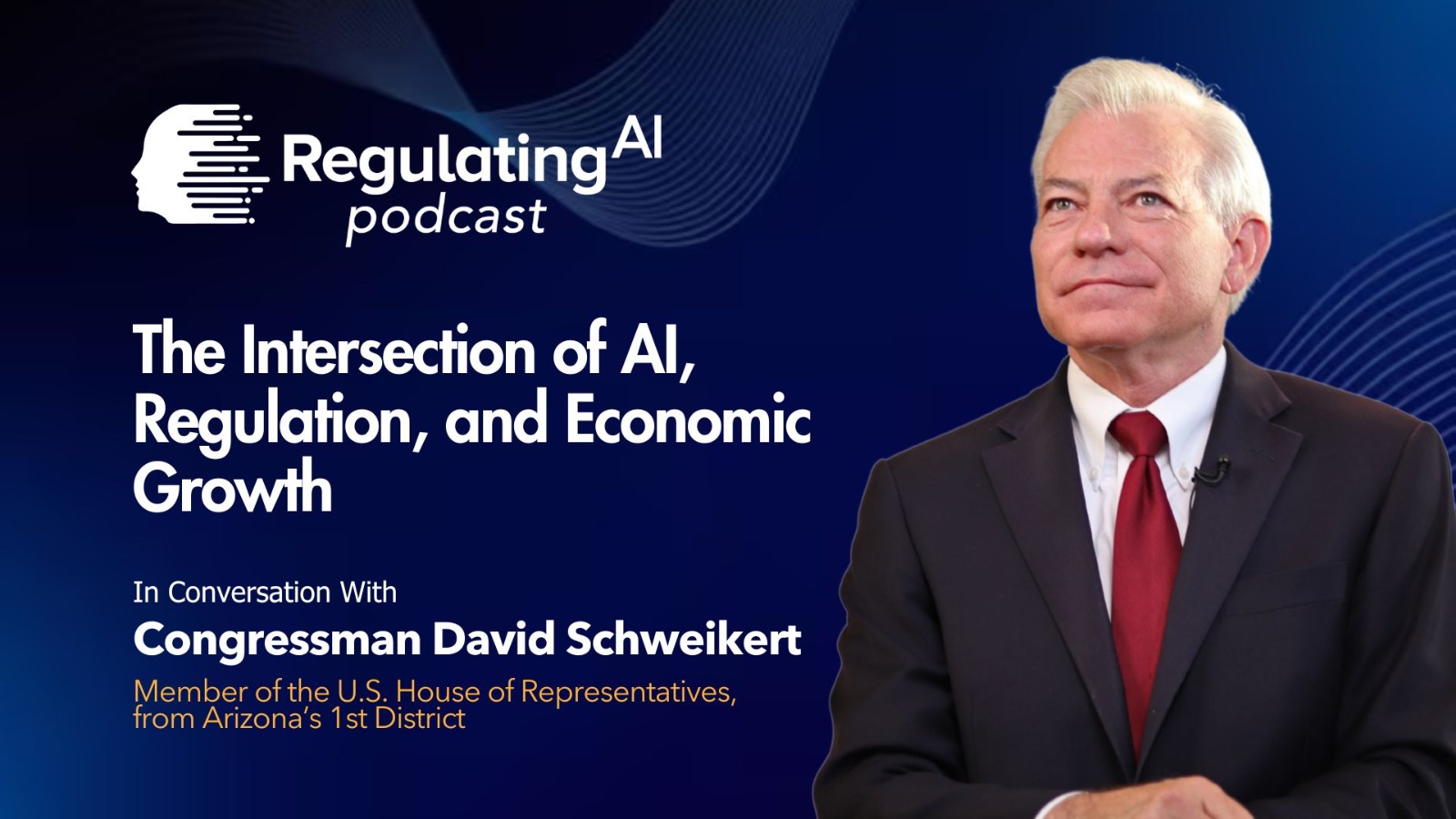Editor’s note: This article is based on insights from a podcast series. The views expressed in the podcast reflect the speakers’ perspectives and do not necessarily represent those of this publication. Readers are encouraged to explore the full podcast for additional context.
Congressman David Schweikert, a Republican representing Arizona’s 1st District, is a longtime advocate for technology-driven policy solutions. Known for his work on fiscal responsibility, healthcare innovation, and regulatory reform, Schweikert has been vocal about the role of emerging technologies in shaping the future of governance and economic growth.
Schweikert is now pushing for the adoption of artificial intelligence (AI) to address major challenges in the United States, from healthcare reform to government efficiency, while warning about the risks posed by deepfakes and misinformation.
Schweikert, speaking on the “Regulating AI” podcast with host and AI regulation expert Sanjay Puri on Wednesday, highlighted the economic and demographic hurdles facing the country, including mounting national debt, an aging population, and rising healthcare costs.
READ: Regulating AI: Sanjay Puri on policy, challenges, and ethical innovation (November 1, 2024)
“The industrialized world, particularly in the United States, we’re in trouble. We have remarkable debt build up, we have a demographic curve, we’re getting old very fast and along with a number of things we have to do, we have to get dramatically more efficient and we have to cut down cost externalities,” Schweikert said, highlighting the challenges the country faces and argued that AI could play a pivotal role in increasing efficiency, particularly in the medical field.
However, he noted that societal resistance to technological adoption remains a significant barrier. “I don’t think society is completely ready for a natural language voicemail you get that sounds like your grandma or a video like this where someone has taken our language and changed us, and I see chaos coming in society,” he said.
The congressman also discussed the intersection of AI and blockchain with Puri, emphasizing its potential for secure data management and ownership verification. According to Schweikert, blockchain could enhance privacy in AI applications, an area of growing concern among policymakers and the public.
Addressing the spread of deepfakes and misinformation, particularly in the lead-up to elections, Schweikert called for increased public skepticism. “We need a more educated and questioning public to combat the dangers of manipulated media,” he said.
As part of his legislative efforts, Schweikert has introduced the Healthy Technology Act of 2025, which aims to integrate AI and machine learning into drug prescription processes. He has also been a longtime advocate for telehealth, pushing for wider adoption before the COVID-19 pandemic and stressing its importance for rural communities.
“Unless you have a revolution in the cost of providing health services of making our brothers and sisters healthier, I don’t know how we’re going to finance it,” Schweikert said.
In government oversight, Schweikert suggested employing AI to audit the Pentagon, which has faced challenges in financial transparency. The congressman also highlighted AI’s potential benefits for indigenous communities, particularly in healthcare and education, provided there is equitable access to broadband infrastructure.
On the issue of job displacement due to AI, Schweikert remained optimistic, asserting that market economies will adapt. He emphasized the need for retraining and education to prepare workers for new opportunities in an AI-driven world.
“Design policy that allows the disruption, allows the creativity, and maybe move away from everything we thought we knew from a previous decade,” Schweirkert said on accommodating rapid technological advancements, ensuring that regulations do not stifle innovation.
Schweikert also underscored the importance of international cooperation in AI regulation, noting that global collaboration is necessary to curb malicious use of the technology and ensure ethical standards.
READ: You can’t have smart cities without smart transportation: Sanjay Puri (January 19, 2016)
For policymakers, he advised continuous learning and designing regulations that are flexible enough to adapt to rapid advancements in AI.
Despite the challenges, Schweikert expressed hope that AI could lead to major advancements, particularly in healthcare, if regulatory and societal barriers are addressed.
By Mythili Devarakonda March 27, 2025
Read the full article here.
Back to News

